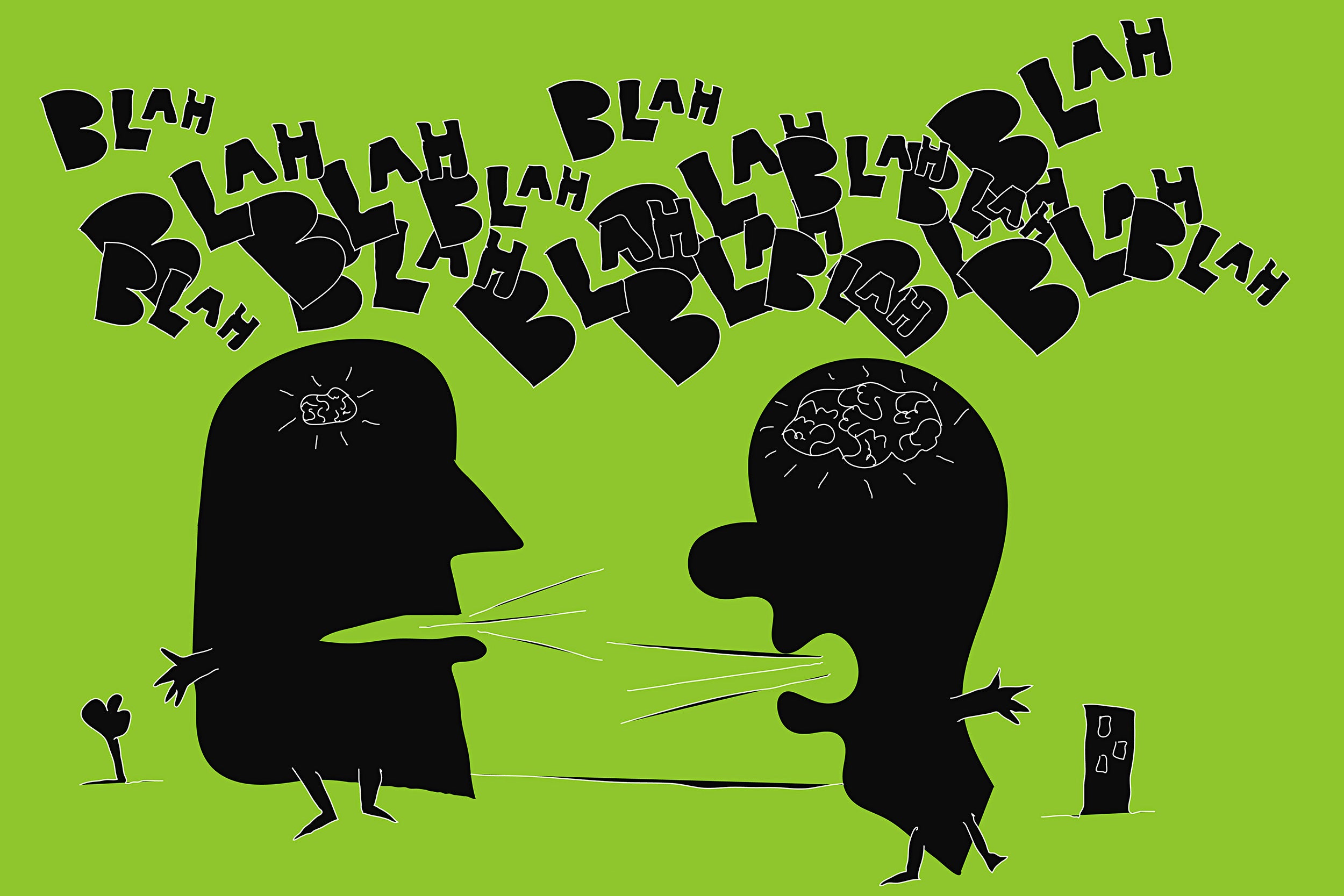
Illustration by Oscar Armelles/Ikon Images
Next spat with your partner, try silence
If you’re doing all the talking, then you’re probably doing it wrong
Part of the Wondering series
A series of random questions answered by Harvard experts.
Sheila Heen is the Thaddeus R. Beal Professor of Practice at the Law School, deputy director of the Harvard Negotiation Project, and co-author of “Difficult Conversations: How to Discuss What Matters Most.” We asked her advice for navigating tension and conflict in relationships.
It’s our differences that make our relationships rich and interesting, but it’s also our differences that can be a source of conflict. We all have different communication quirks: how long we wait before interjecting in a conversation; whether we think out loud or process information internally; whether we tend to dominate conversations or be more of a listener. These things aren’t good or bad, but they affect how we connect with others. These characteristics are informed by our personalities, preferences, culture, and power dynamics. You might come from a family where everyone talks over each other, but it doesn’t bother anyone. Your friend might come from a family that does the same thing, but it’s seen as hurtful or dismissive. Just paying attention to these differences can help us spot and discuss small frictions before they escalate to the point of conflict.
“Silence allows us to attempt to understand what’s happening inside ourselves, and for one another.”
Silence can be a powerful tool because it allows everyone in the conversation to process what’s happening. It might seem like nothing is happening on the surface, but internally everyone’s thoughts might be firing rapidly, our emotions in overdrive. Silence allows us to attempt to understand what’s happening inside ourselves, and for one another. That pause can prompt reflection: Do I really want to blurt out the first thing I’m thinking, or take a minute to consider its potential consequences? In the heat of the moment, when we’re trying to be understood, it’s tempting to repeat, elaborate, or re-explain why we’re right. But the other person might be waiting for a pause so they can respond without interrupting. We’ll never know if we don’t take a break! Pause, breathe, be curious.
Conversely, there are times when it is powerful to use your voice. Many people choose to stay silent because they’re still weighing the risk of sharing how they feel. Maybe you’ll be seen as a complainer or troublemaker — you’ll start a fight or risk losing your job or the relationship. Or it could be that you feel much more comfortable being mad at someone else rather than having them be mad at you — so you hide your true feelings, which can really damage relationships. Researcher John Gottman found a “magic ratio” for positive to negative interactions for couples, hovering around 5:1. Why not 10:1? Well, if you never bring up the negative, tension-filled parts of a relationship, it eats away at the relationship’s quality. For me, the gold standard is to have two-way conversations where all parties can honestly share what they’re experiencing — physically and emotionally — in a way that strengthens the relationship.
Here’s an example: Some couples operate in a negative cycle where one person’s impulse is to be direct and name issues, while the other person’s instinct is to stay calm. Their calm then suggests that either they don’t understand what a big problem this is or they don’t care, and so the first person escalates in order to get through to them. To break that cycle, it can be helpful to give each other advice for how to read each other, to say things like, “I want you to understand how important this is to me” or “I’m trying to stay calm so I can hear you because I know this is important.”
And it’s important to note that it’s not a static thing. In one relationship, you might be the one who tends to talk too much. In another, you might be the silent person who needs to say something. We all fall into these patterns of behavior. If you find yourself tripping over the same roadblocks when conflict arises, you can experiment with new ways of operating to see if you might be able to change the dynamic for the better.
— As told to Samantha Laine Perfas/Harvard Staff Writer
















